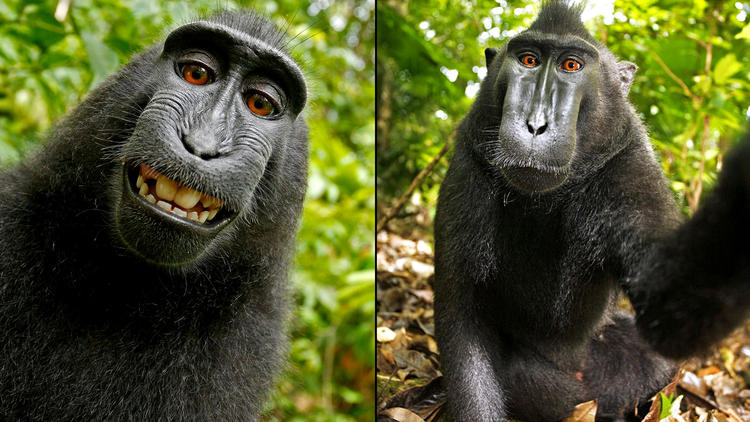Monkey Selfie copyright problem solved by US Copyright Office

The dispute between the photographer and Wikimedia , the subject of which are monkey selfies (an animal stole a camera and made a selfie), received a curious sequel. The discussion became so active that the officials, namely the US Copyright Office, took up the issue.
And the solution, after a detailed consideration of the problem, became unequivocal : “Works made by nature, animals or plants” cannot be protected by copyright.
')
The story itself began in 2011, when the photographer David Slater, specializing in wildlife, decided to photograph a rare species of monkeys from Indonesia. The photographer began to install the equipment, but one of the monkeys decided to help the man. Without thinking, the animal stole the camera, and began to press the shutter button again and again. Among the hundreds of photographs obtained there are almost perfect selfies of the animal.
The photo was uploaded to Wikimedia Commons, after which the photographer asked to delete this photo, stating its rights to it. Wikimedia representatives (a non-profit organization that serves the work of a dozen wiki projects, including Wikipedia and Wikimedia Commons) refused to delete the photo, indicating that the rights to the selfie photo do not belong to the photographer. The photographer began to challenge this opinion, arguing that he had lost thousands of dollars in "lost profits" as deductions. The photographer even informed the Air Force that the monkey was his assistant.
After that, the web and the pages of paper magazines and newspapers started a heated discussion about the rights of the photographer and the right of outside organizations and individuals to use such photos.
Now the decision has been made in the USA, so the photographer will have to be content with this decision, and Wikimedia (and other organizations / resources) will be able to safely use the photos, which are authored by natural forces / objects. The Copyright Office did not comment on this particular case, but one must think that the decision was initiated by this very case.
Via latimes
Source: https://habr.com/ru/post/234245/
All Articles